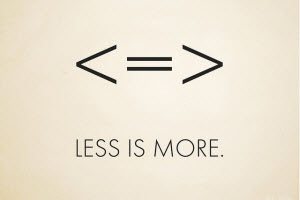METHOD:
- I am a trend hunter I want a stock that has the potential to move 10-20 points in my favor.
- My top pivot points for trades is the 5 day EMA (3 & 7DEMA for NF )
- I play the long side in bull markets primarily and the short side in bear markets primarily.
- I go long the top monster stocks in up trending markets.
- I never short a monster stock above the 50 day moving average.
- I short the biggest junk stocks in down trends, the ones that are unprofitable and made major missteps with customers and investors.
- I like to trade with all time highs or all time lows in stocks with in striking distance.
- Moving averages are my best indicators.
- I never have targets, I let a trend run until it reverses.
- My watch list for longs is the Investor’s Business Daily IBD50.
- I use Darvas Boxes at times to trade stocks.
PSYCHOLOGY:
- I am not trying to prove anything about myself I am only trying to make money.
- I will quickly admit when I am wrong when a stock moves against me enough to show me I am wrong.
- I trade my own method, I do not trade others advice.
- If I am losing and very unconformable with a trade I get out of it.
- I trade position sizes I am mentally comfortable with.
- I do not try to predict the future I look for what the chart is telling me.
- I trade the chart not my personal opinions.
- I am not afraid to chase a trending stock.
- I understand that I chose my entries, exits, risk, and position size and the market chooses when I am profitable.
- I do not worry about losing money I worry about losing my trading discipline.
- I have faith in myself and my method.
- I do not blame myself for losses.
- I do not blame myself for losses where I followed my rules.
RISK MANAGEMENT:
- I attempt to never lose more than X % of my total capital on any one trade.
- I NEVER add to a losing trade.
- I use trailing stops to get out of winning trades.
- I use mental stop losses to get out of losing trades.
- I use position size to limit my risk.
- I use stock options to limit my risk.
- I know my biggest advantage in trading is small losses and big profits.
- I never expose more than X % of my capital to risk at any one time.
- I understand the market environment I am trading in.
- I understand the volatility of the stock I am trading.


 A book review for Brent Penfold’s book “The Universal Principles of Successful Trading: Essential Knowledge for All Traders in All Markets”
A book review for Brent Penfold’s book “The Universal Principles of Successful Trading: Essential Knowledge for All Traders in All Markets” In 1952
In 1952 
 Life does not come with a neatly designed manual.No one gives you a manual on trading when you start. You have to figure out things on your own.
Life does not come with a neatly designed manual.No one gives you a manual on trading when you start. You have to figure out things on your own.  In Jack Schwager’s book Market Wizards, Schwager interviewed some of the world’s top traders and investors, nearly all of whom emphasised the importance of money management. Here are a few of my favourite excerpts:
In Jack Schwager’s book Market Wizards, Schwager interviewed some of the world’s top traders and investors, nearly all of whom emphasised the importance of money management. Here are a few of my favourite excerpts: